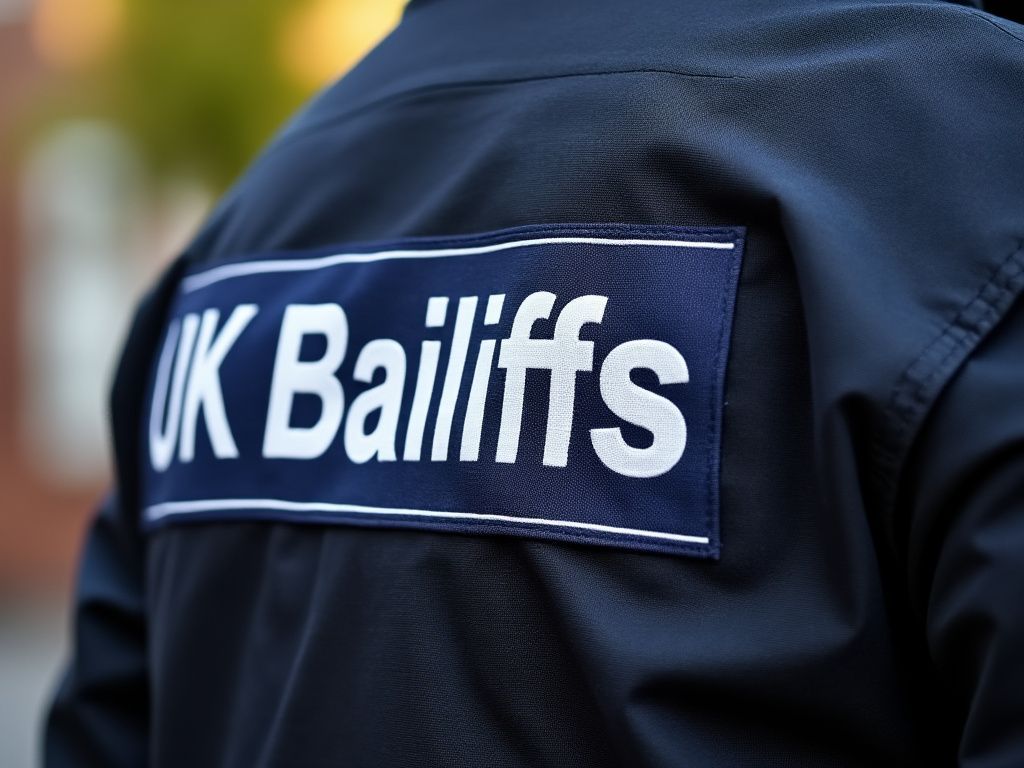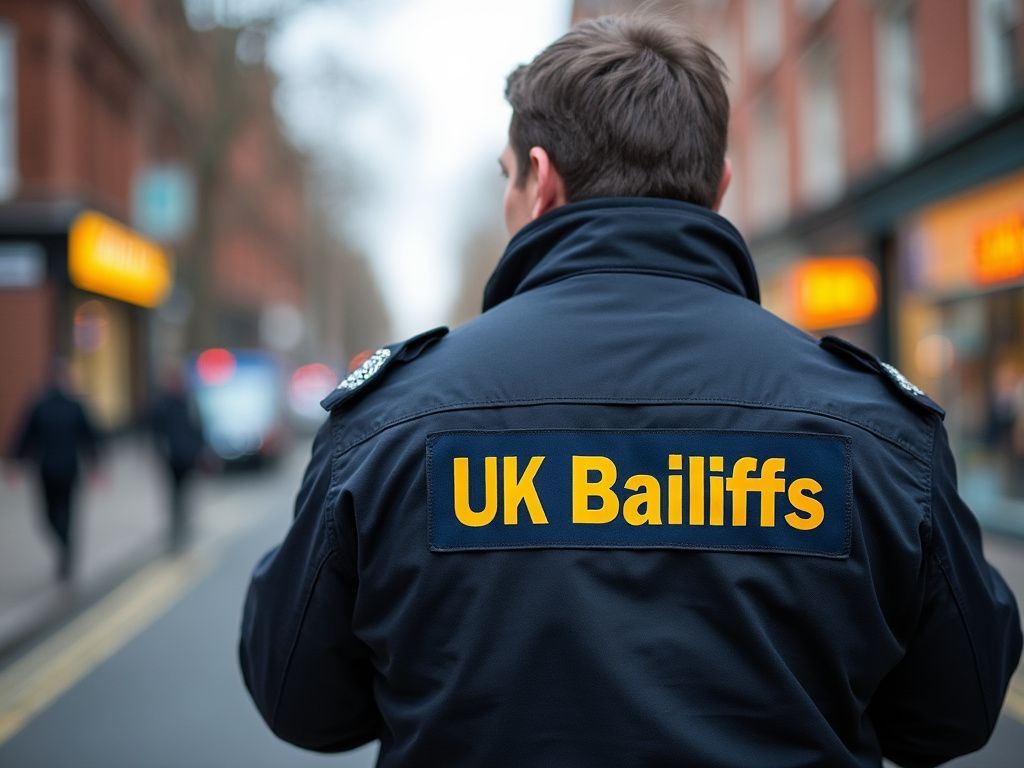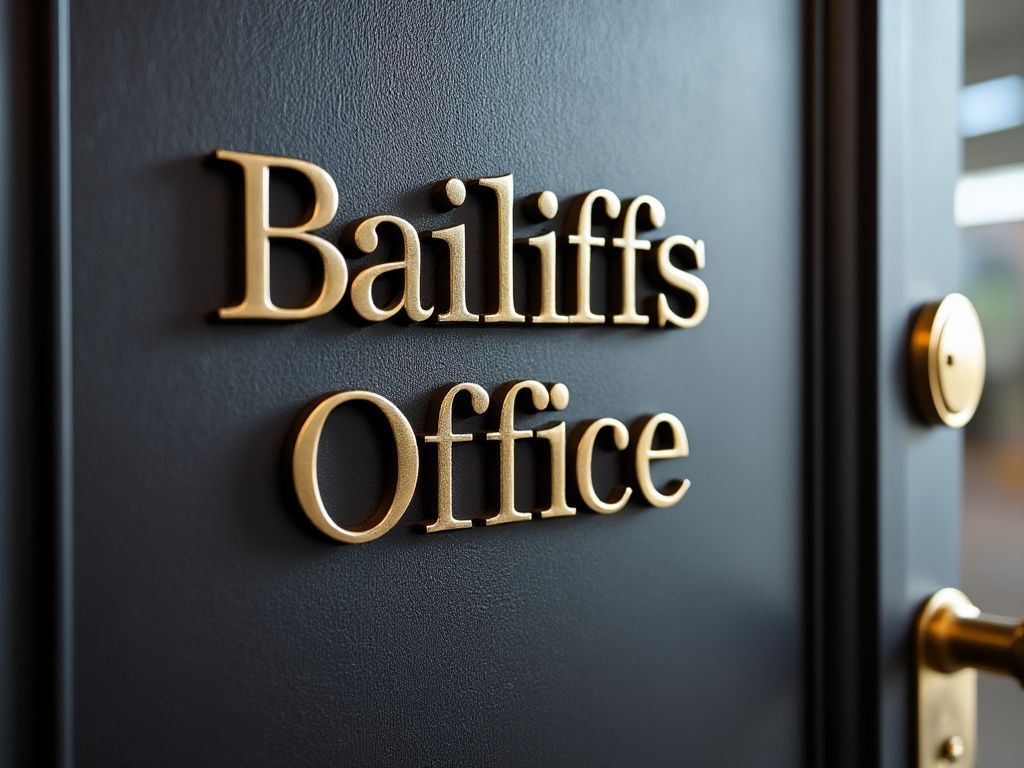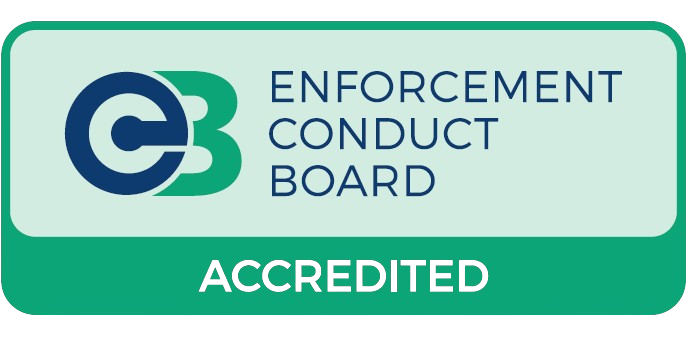Bailiffs and Enforcement Agents
What is the Difference Between a Bailiff and an Enforcement Agent?
🚨 Instruct an Agent
Bailiffs
Bailiff was originally the term used by the Normans to describe the officer responsible for executing the decisions of a court.
The duty of the bailiff would include serving summonses and executing all warrants issued from that Court.
Until 2014, the term was used to describe either a person employed directly by the Court (County Court Bailiff) or a person employed through a Private Enforcement Agency (Certificated Bailiff).
In 2014, legislation called the Taking Control of Goods Regulations was introduced to regulate the industry and establish a set of fees and rules.
As part of these reforms, the term “Bailiff” was officially replaced by “Enforcement Agent.”

Enforcement Agents
Enforcement agent is now the official term for bailiff under the 2014 regulations, although “bailiff” remains widely used.
They are used to collect unpaid debts on behalf of creditors — including local authorities, courts, and private companies.
They have the power to take control of goods using warrants or writs of control and sell them to recover the debt and enforcement fees.
Most certificated enforcement agents are self-employed or work for private enforcement agencies — not the courts.
They are certified by the County Court, which oversees their conduct, competence, and adherence to the law.
Certificates cost £365.00 and must be renewed every two years. Applicants must prove they are fit and proper and understand enforcement law.
High Court Enforcement Officer
This title is often misunderstood, largely due to media like “Can’t Pay? We’ll Take It Away.”
A High Court Enforcement Officer (HCEO) is an officer of the High Court of England and Wales who oversees writs of control.
They delegate authority to certificated Enforcement Agents for execution of these writs.
There are currently only 46 HCEOs in England and Wales, appointed by the Lord Chancellor.
The term “High Court Enforcement Agent” is not a legal title — the executing party is still an Enforcement Agent.
Agents executing writs of control have different powers and charge different fees compared to those enforcing warrants of control.

County Court Bailiff
County Court bailiffs are used to enforce County Court orders and tribunal orders transferred to the County Court for enforcement. They are employed directly by HM Courts & Tribunals Service and are accountable to the court.
Because they are Crown employees, they do not need to be certificated. Their authority to act comes from a warrant of control issued under a County Court judgment.
They can take control of goods to recover money owed under the judgment, plus any enforcement costs.

Types of Debt Collected
Certificated enforcement agents (formerly certified bailiffs) are authorised to take control of goods under a warrant of control issued by a magistrates court. Common debts they collect include:
- Council tax arrears
- Non-domestic business rates
- Magistrates court fines
- Child support arrears
They also act on a writ of control issued by the High Court to recover private debt.
Commercial landlords can instruct a certificated enforcement agent directly (without court proceedings) using Commercial Rent Arrears Recovery (CRAR), as long as the notice is issued lawfully and the criteria are met.
It is essential to distinguish between certificated enforcement agents and private debt collectors. The difference is legal authority: enforcement agents are certified by the court and empowered to take control of goods. Private debt collectors are not.
🔎 What You Can Do When a Bailiff Visits
If you fail to pay debts such as Council Tax, parking fines, or court judgments, bailiffs (also known as enforcement agents) may visit your home. You’ll usually receive written notice first.
📋 Types of Bailiffs
- Certificated Enforcement Agents (civil debt, CRAR, parking fines)
- High Court Enforcement Officers
- County Court and Family Court Bailiffs
- Approved Enforcement Agents (criminal fines, arrest warrants)
🚪 Your Rights When Bailiffs Visit
- You don’t have to let them in (unless for criminal fines/taxes)
- No entry allowed between 9pm and 6am
- They cannot enter if only children or vulnerable adults are present
- They may not use force on the first visit for most debts
📦 What Bailiffs Can and Cannot Take
Bailiffs may take goods to cover the debt, but cannot remove:
- Essential household items (fridge, cooker, beds, etc.)
- Work tools worth under £1,350 in total
- Belongings that belong to someone else (proof required)
📄 Bailiff Fee Structure
The fees bailiffs can charge are set by law under the Taking Control of Goods (Fees) Regulations 2014:
- £75 – Compliance Stage: Notice of Enforcement issued
- £235 – Enforcement Stage:
Bailiff attends the premises
➕ Plus 7.5% of any debt amount over £1,500 - £110 – Sale or Disposal Stage:
Goods are seized for sale
➕ Plus 7.5% of any debt amount over £1,500
Example: For a £3,000 debt: Enforcement Fee = £235 + 7.5% of £1,500 = £347.50
Extra costs may apply for locksmiths, auctioneers, or storage.
📆 Typical Bailiff Visit Timeline
- Day 1: Notice of Enforcement (Compliance Stage)
- Day 8: Bailiff may attend (Enforcement Stage)
- After Visit: Goods may be seized or a Controlled Goods Agreement issued
🆔 Check the Bailiff’s Identity
Before letting a bailiff in or making a payment, ask to see:
- Their ID badge or enforcement certificate
- Company details and contact number
- A clear breakdown of the debt owed
Verify certificated enforcement agents via the official bailiff register.
⚠️ How to Complain About a Bailiff
You can complain if a bailiff:
- Threatens or harasses you
- Attempts unlawful entry
- Takes items they shouldn't
- Charges incorrect fees
Send complaints to the enforcement company and creditor. If unresolved, you can complain to the court if they’re certificated.
📝 Court Complaints – EAC2 Form
If you're unhappy with a certificated enforcement agent’s conduct, you can ask a judge to review their fitness to operate:
- Download and complete the EAC2 form
- Send it to the court where they are registered (see the certificate register)
If the court agrees, their certificate can be suspended or revoked. There is no fee to submit, but you may owe costs if it’s deemed unreasonable.
🔗 Useful Links
Fees Charged
The main difference between Enforcement Agents acting under a Warrant of Control(e.g. CRAR, Magistrates Fines, Business Rates) and a Writ of Control(e.g. Private Debt) is the fee structure and number of stages involved.
Enforcement other than under a High Court Writ
- Compliance Stage: £75.00
- Enforcement Stage: £235 + 7.5% of any sum recovered exceeding £1500
- Sale and Disposal Stage: £110 + 7.5% of any sum recovered exceeding £1500
Enforcement under a High Court Writ
- Compliance Stage: £75.00
- First Enforcement Stage: £190 + 7.5% of any sum recovered exceeding £100
- Second Enforcement Stage: £495
- Sale and Disposal Stage: £525 + 7.5% of any sum recovered exceeding £1000

The Bailiff Register
The Ministry of Justice maintains the Certificated Enforcement Agent (Bailiff) Register, which holds details of all enforcement agents who hold a certificate, granted by a judge at the County Court. This certificate allows them to carry out enforcement action by way of taking control of goods and, if necessary, selling these to recover a debt.
It also contains the details of all individuals who have applied to hold or renew such a certificate.
You can check if a bailiff is on the register by clicking below:



